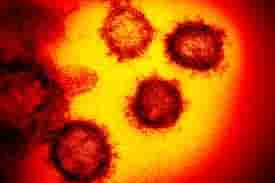The World Health Organization recently said that it is currently carefully monitoring the Mu variant of coronavirus, which may contain specific mutations that experts say may not work against present vaccines being administered around the globe.
The Mu variant, also known as the B.1.621 variant, has just been added recently to the WHO’s list of “variants of interest.”
A variant is considered a “variant of interest” if it shows “specific genetic markers that have been associated with changes to receptor binding, reduced neutralization by antibodies generated against previous infection or vaccination, reduced efficacy of treatments, potential diagnostic impact, or predicted increase in transmissibility or disease severity.”
According to a CNBC report, the Mu variant contains some genetic mutations that suggest natural immunity, and the COVID19 vaccines and antibody treatments may not be effective to fight or stop the virus, particularly compared to the original strain of the coronavirus.

The Mu strain needs further study to confirm whether it will prove to be more contagious, more deadly or more resistant to current vaccines and treatments, the report said.
At present, the Mu variant has been detected in 39 countries, only making 1.0% of total COVID19 cases in the entire world. But, according to Axios, it has been found to be rising in South America with 39% of the cases in Colombia are from this variant. Mu is derived from the Greek alphabet, with M being the 10th letter. The WHO assigned each variant found with a Greek letter name.
Experts raised concern over the Mu variant after scientists claim that they discovered a new coronavirus variant, known as C.1.2, in South Africa that could potentially be more infectious and elude vaccines.
Although C.1.2 isn’t considered a variant of interest or concern by the World Health Organization, researchers said that it had “mutated substantially” compared to the original variant of the coronavirus. According to researchers, this variant has had several mutations that it can possibly evade COVID-19 vaccines as well.
“It is important to highlight this lineage given its concerning constellation of mutations,” the researchers from South Africa’s National Institute for Communicable Diseases said in the study.


